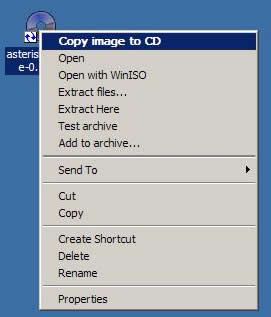So, my 3rd Motorola T720 finally stopped charging, and I decided that even though this phone was free from Cingular, I needed something a little less flaky. I'd really like the ability to have my phone act as a data modem for my PDA (or replace my PDA) and laptop, letting me connect anywhere anytime I need to digitally "thwack" a server into shape. I'm willing to pay the full $80/mo Cingular charges for this service, but don't want to use their PCMCIA card to do so, as my PDA won't take it, and my laptop usually has it's single slot occupied.
A decent phone with bluetooth ought to fit the bill perfectly, right? No way! I've been through a couple of phones and NONE of them allow bluetooth data without some hacking.
BlackBerry 7290 comes with bluetooth, and even though the specs say it can act as a serial device, it's been totally disabled. Checking out the new
Treo 650 found out that DUN (Dial Up Networking) via bluetooth AND wifi driver have been disabled. Now,
Shadowmite has ROMS & patches to overcome these weaknesses, but why are they necessary? If I'm
willing to pay for the service, why deny me the opportunity of doing business with you? My (unlocked)
Audiovox 5600 worked with bluetooth DUN no problem, but as it wasn't EDGE it was slower than dialup. I've got a
Motorola V551 charging as I type, and I'm hoping to get it up and running, but have been told I may have to see if Cingular will "catch on" to the fact I'm using it as a data modem. I don't want to have to rely on workarounds and hacks to get this to work... If I'm going to be paying more than DSL/Cable Modem rates I'd at least like the luxury of calling up tech support if it stops working (not that Cingular phone support has
ever helped me out on the data end...)
When will tech companies wake up to the simple facts that:
1) When they try to cripple a technology, workarounds will appear - often before the product hits the market.
2) Not providing paying customers a service they are ready and willing to pay for is pure stupidity!
3) Forcing users to workaround your arbitrary regulations and self-imposed limitations raises up a culture believing they are entitled to steal from you (MP3s anyone?)
I plan on writing a letter formally to Cingular asking them if they are able to supply combination phone/data equipment and service that meet my needs. I'm not hopeful, but we'll see what happens.

 I just ran across startup Realm Systems' Mobile Personal Server. It's basically a cell phone sized server (400 MHz dual PowerPC processors, up to 64 MByte DRAM, up to 20 GByte hard disk space, up to one GByte Flash memory) that you plug into any USB equipped host computer (OS X, Windows or Linux) and it "hibernates" the host PC's operating system and takes over hardware components such as screen, graphics, keyboard and mouse.
I just ran across startup Realm Systems' Mobile Personal Server. It's basically a cell phone sized server (400 MHz dual PowerPC processors, up to 64 MByte DRAM, up to 20 GByte hard disk space, up to one GByte Flash memory) that you plug into any USB equipped host computer (OS X, Windows or Linux) and it "hibernates" the host PC's operating system and takes over hardware components such as screen, graphics, keyboard and mouse.